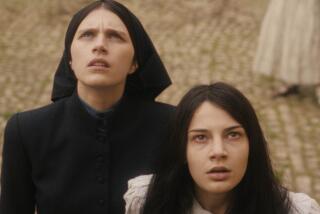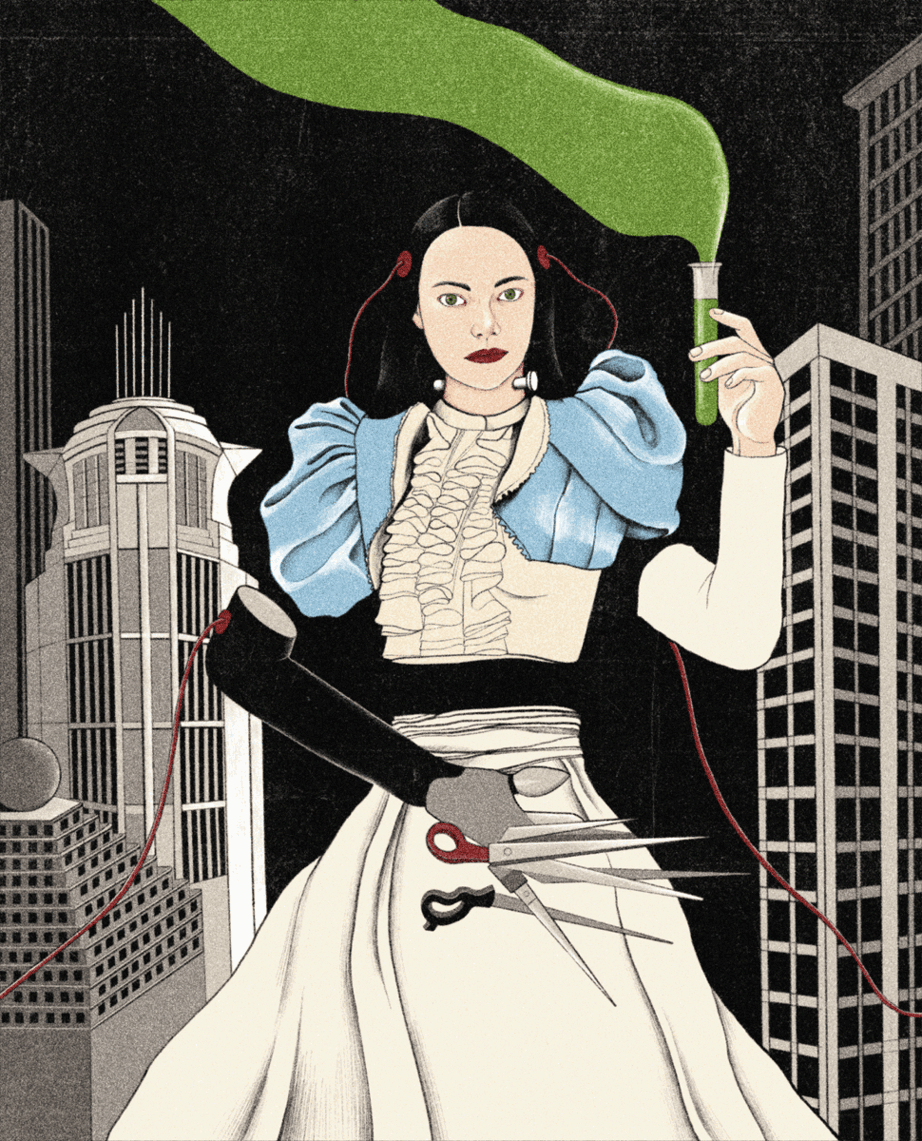Trouble in Mind
- Share via
Henry James’ chilling ghost story, “The Turn of the Screw,” has puzzled readers and scholars since its publication in 1898. His tale about a governess who believes her two young charges are possessed by evil ghosts is naggingly ambiguous: Are the ghosts real? Is the governess losing her mind? Are the children really evil?
The latest adaptation of the novel, which airs Sunday on PBS’ “Masterpiece Theatre,” doesn’t provide any answers to questions that have lingered for a century.
“There are something like 400 or 500 books written on ‘Turn of the Screw’ in the past 100 years,” says Nick Dear (“Persuasion”), who adapted the novel. “The reason, in my opinion, is because Henry James doesn’t resolve the ambiguity in the story.”
“Turn of the Screw” originally was serialized in Colliers magazine. Dear discovered during his research that James, while preparing the story for its publication in novel form, altered the manuscript to make plot points less clear.
“Normally, a writer would go through and clarify points and make clear what the meaning is,” Dear explains. “James got rid of anything which would dissolve his ambiguity. It suggested to me he was very intent on it being very uncertain -- whether these ghosts exist in the real world, or is the governess going crazy? I particularly wanted to hang on to that idea.”
Jodhi May (“The Aristocrats”) stars as Miss, the naive young governess who is hired by the Master, a handsome, wealthy bachelor (Colin Firth), to look after his young niece (Grace Robinson) and nephew (Joe Sowerbutts) at his country home. Miss is smitten by the charms of Master and agrees to his single stipulation: She is never to contact him about his wards.
Impressed by the beautiful mansion and her two adorable charges, Miss soon finds a friend and confidant in Mrs. Grose (Pam Ferris), the housekeeper. But things start to go amiss when she sees the ghosts of two former employees, Peter Quint (Jason Salkey) and Miss Jessel (Caroline Pegg). Deeply religious, Miss fears the children not only can see the maniacal spirits, but that they are in league with them. She decides she must do anything to save them.
Deborah Kerr starred in the 1961 film version, “The Innocents,” which was more of a straightforward ghost story, as was the Emmy Award-winning 1959 TV version with Ingrid Bergman.
May believes Dear’s adaptation focuses on the darkness of the novel. “He has captured in his version her constantly having a sense of doubt whether the children are innocent or incredibly sophisticated,” says May. “The sense of her not being able to define reality or reason with the situation in any kind of rational way is really what makes the piece so disturbing.”
Producer Martin Pope believed it was important to stress that Miss had led a poor, sheltered life as the daughter of a country parson.
“The children are charming. Miss suddenly has a room where she has a huge mirror,” says Pope. But because she grew up with nothing, she begins to feel guilty about her good fortune.
“It is precisely because [the situation] is so fantastic, she can’t believe it,” Pope says. “Then, of course, if you don’t believe it, things have to go wrong.”
Since its first telling, scholars have transposed society’s worst fears into the unspoken evil in the novel, according to Pope.
For the first two decades, “Turn of the Screw” was looked upon as a story of demonic possession. With the rise of Freud, scholars viewed the novel as an examination of Miss’ repressed sexual desires, sparked when she meets the Master.
Currently, Pope says, critics believe “Turn of the Screw” is really a chronicle of child abuse. “These children were abused by Quint and Jessel and now, in a way, are being abused by the governess,” Pope says. “Whatever people think is really, really terrible is what they think is going on in the novel because James was so unspecific.”
Director Ben Bolt (“Hill Street Blues”) decided that the children weren’t possessed by the ghosts, but were, in fact, very disturbed psychologically because “their parents died in India when they were very young and they had been stuck in this big old country house. This made them very close to each other, which a certain suspicious kind of adult [like Miss] would find worrying, that they would whisper and be private with each other.”
Bolt believes Miss really does see the ghosts. “But they only appear because of her mixed-up psychological state . . . These ghosts were lying in their pit or wherever ghosts hang out and were awakened by her hysteria.”
*
“The Turn of the Screw” airs Sunday at 9 p.m. on “Masterpiece Theatre’ on KCET. The network has rated it TV-PG (may be unsuitable for young children).
More to Read
Sign up for our Book Club newsletter
Get the latest news, events and more from the Los Angeles Times Book Club, and help us get L.A. reading and talking.
You may occasionally receive promotional content from the Los Angeles Times.







